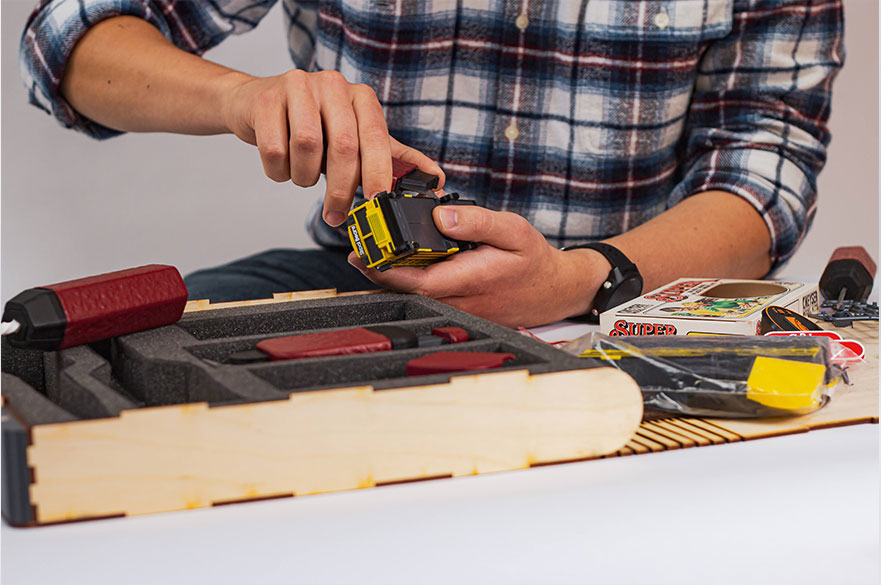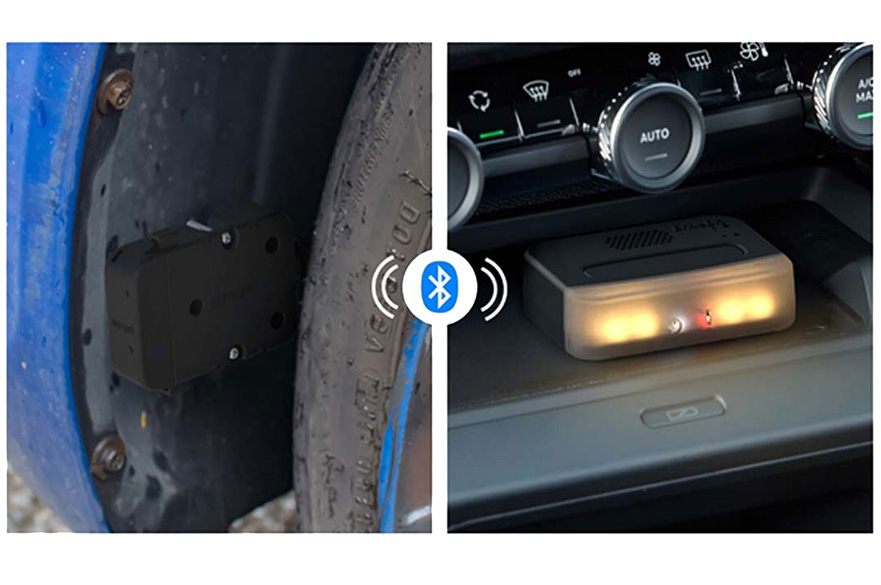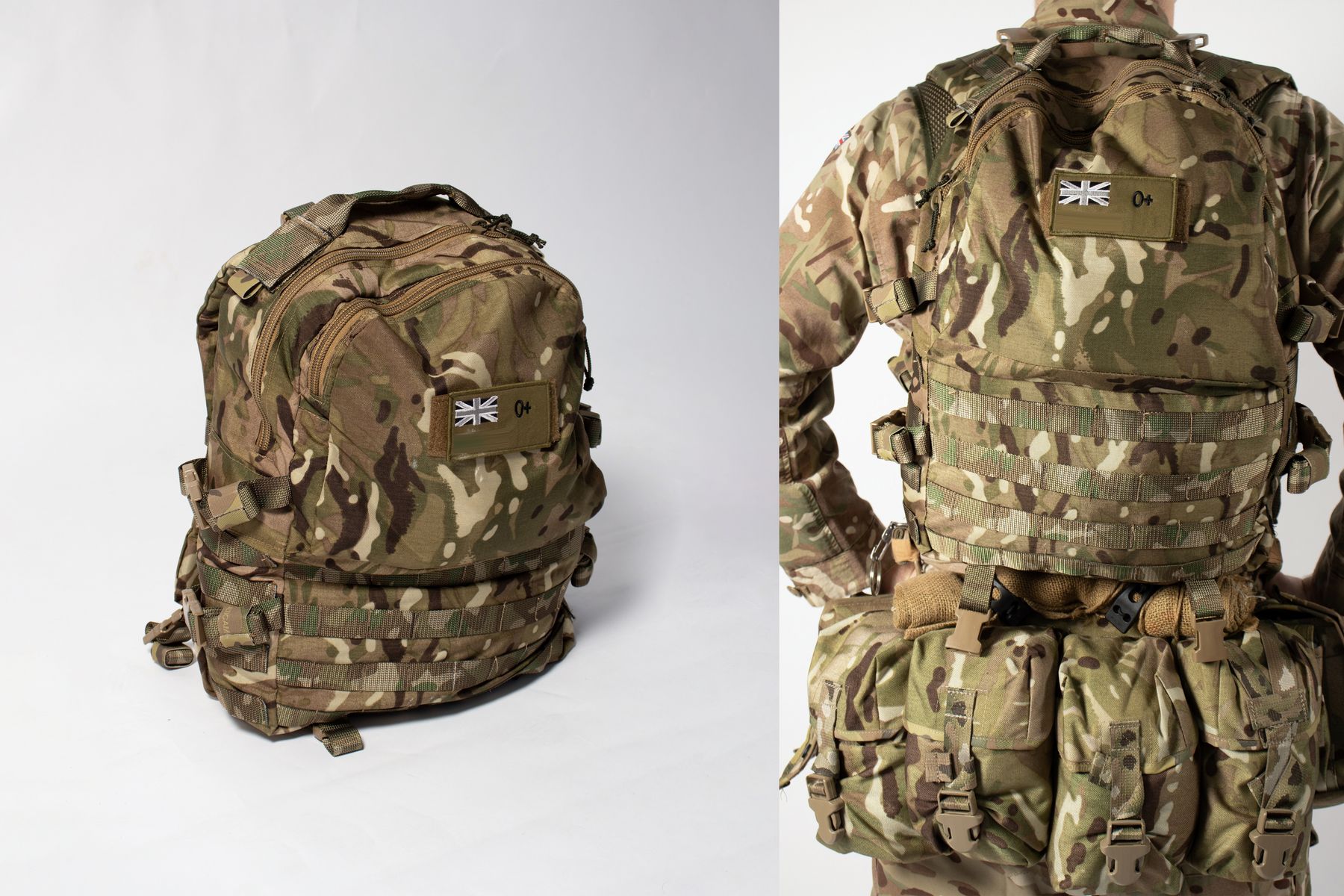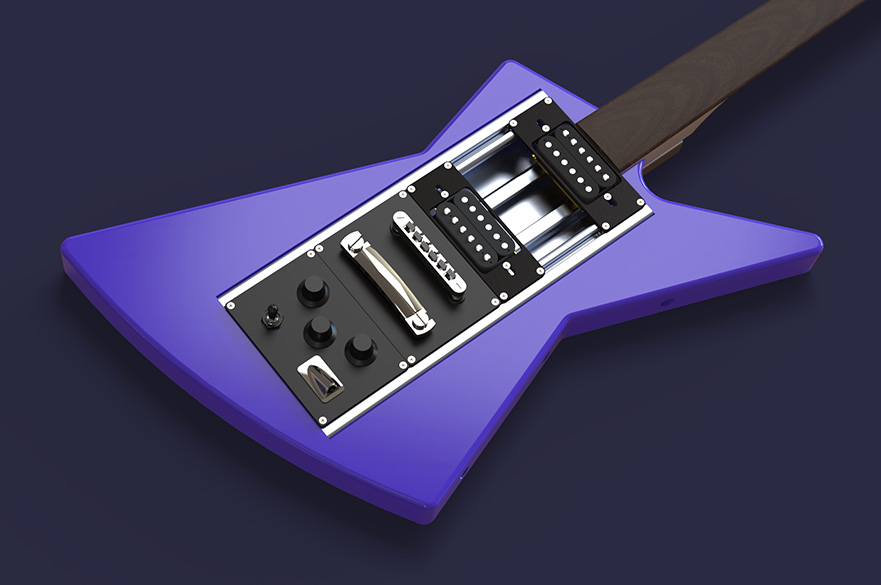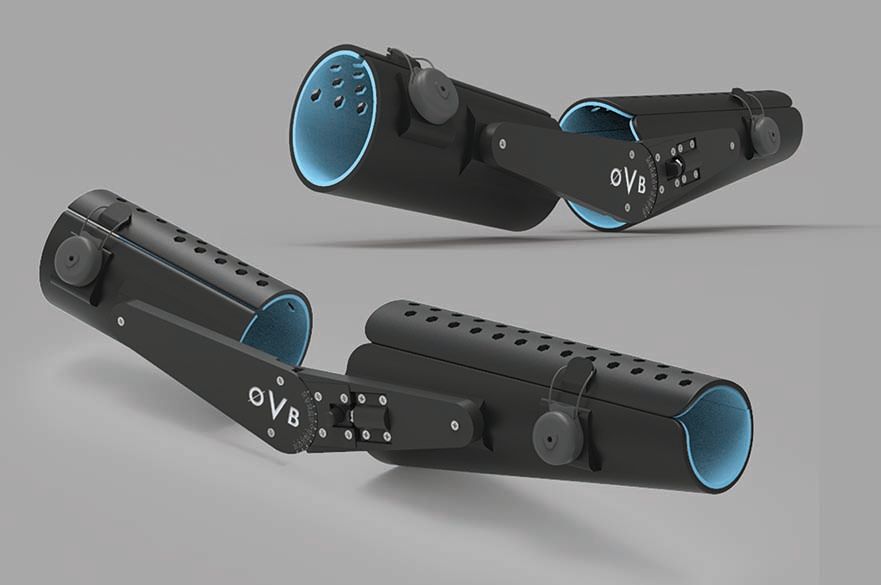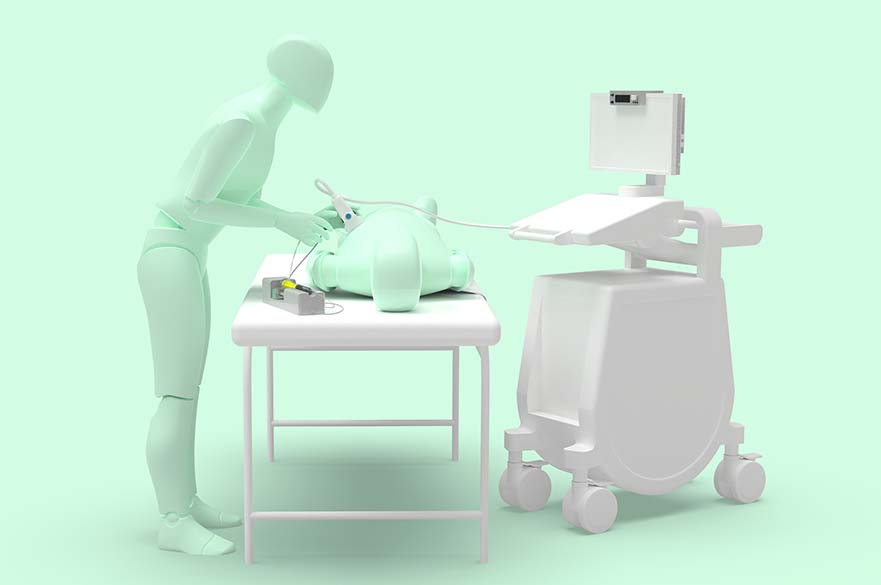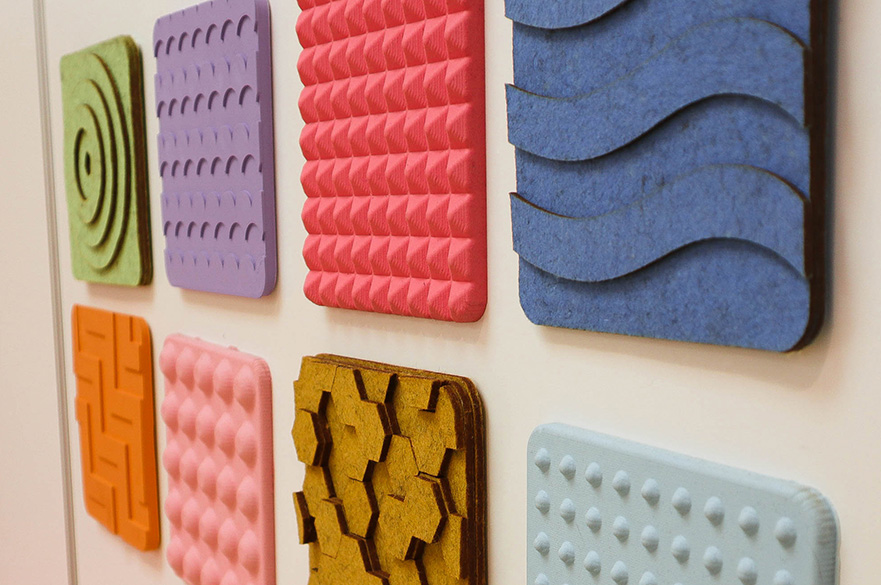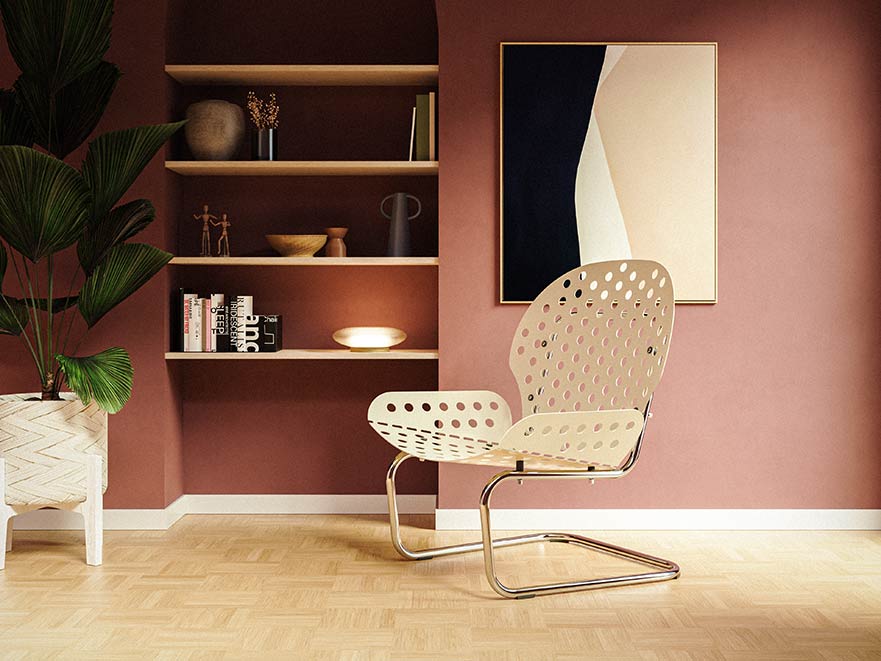This course is in Clearing
Offers from 80 tariff points
About this course
We focus on the practical, hands-on side of design—how products, systems, and services are made and manufactured. Perfect for those who are curious about design engineering and want to dive deep into electronics, robotics, materials testing, and manufacturing.
You’ll get to explore the latest trends like UX, smart technology, and sustainability. Through product teardowns, you’ll learn how to reverse engineer and improve existing designs. On-site visits will give you the chance to work on live projects from top industry players, and you might even land a year-long professional placement with companies like L'Oréal, Samsung, Siemens, and Triumph Motorcycles.
Our course is designed to make you a standout candidate for top employers. You'll graduate with the creativity of a designer, the skills of an engineer, and the insight of a business leader. That’s why our alumni go on to work with big names like Lego, Dyson, Tesco, PepsiCo, Disney, Unilever, and McLaren F1.
Explore the work of our graduating students in our Student Showcase.
Compare our courses to find out how this course differs from BA (Hons) Product Design and BA (Hons) Furniture and Product Design.
-
NTU is ranked Top 15 for Art & Design (Complete University Guide 2025).
-
100% of BSc (Hons) Product Design sandwich students have improved their career prospects because of their course (NTU Student Survey, 2024).
-
We’re industry-focused with great connections. Through live projects and placements, you’ll be working with leading companies such as Tesco, PepsiCo and JCB. It’s great for your portfolio and CV, and you’ll also get excellent employability support.
-
2nd most sustainable university in the world (UI GreenMetric World University Rankings 2024).
5
Main image: Work by Zak Boardman
What you’ll study
Explore evolution of design, uncovering its history, trends, and impact. Learn how design principles influence everything from everyday products to complex systems and discover the exciting role of designers and engineers. We’ll cover manufacturing processes, sustainable design, and innovations like smart tech and robotics, all while turning your sketches into real prototypes in our studio and workshops. Dive in and see where your creativity can lead!
Year One
- Introduction to Design (20 credit points)
- Design & Technical Communication (20 credits)
- Technology for Designers (20 credit points)
- Design Innovation & Manufacture (60 credit points)
Year Two
- Professional Practice (20 credit points)
- Advanced Design & Technical Communication (20 credit points)
- Technology, Society & Sustainable Futures (20 credit points)
- Elective Design Project (40 credit points)
- Exploring Design for Society (20 credit points)
Year Three
- Placement
Final Year
- Exploration & Context (20 credit points)
- Commercial Project (20 credit points)
- Self-Directed Project (Technology & Product Design - 80 points)
Introduction to Design (20 credits)
- You'll develop essential design skills, focusing on safe studio and workshop practices.
- You’ll master essential design communication skills, using a mix of 2D and 3D media. From sketching to basic modelling and presentation techniques, you'll gain the creative tools to bring your design ideas to life.
- This module will boost your design skills, spark creativity, and help you solve real-world problems. You'll learn to think critically, reflect on your work, and tackle modern design challenges.
Design & Technical Communication (20 credits)
- Enhance your design skills as you explore advanced design techniques and communication methods, including sketching, rendering, CAD, and 3D digital modelling.
- You’ll gain practical experience by using various media and design methods, giving you confidence to apply safe working in the studios and workshops.
Technology for Designers (20 credit points)
- On this module you will gain a deeper understanding into how technology shapes materials, production, electronics, and programming, enhancing your design skills and innovation.
Design Innovation & Manufacture (60 credit points)
- Explore diverse product sectors and boost your knowledge of design, innovation and manufacturing processes, with a focus on creating impactful, sustainable products.
- Develop your understanding of environmental and ethical considerations in design, learning how to choose manufacturing processes that support sustainability and responsible practices.
Professional Practice (20 credit points)
- Explore design’s past, present, and future. Get hands-on experience through industry insights and discussions, helping you map out your future in the design world with practical, real-world knowledge.
- Develop your critical and analytical skills and learn essential topics like design management, sustainability, and commercial awareness. Understand the wider design industry, including the roles and responsibilities of designers, manufacturers, and consumers, preparing you for a successful career.
Advanced Design & Technical Communication (20 credit points)
- On this module you will explore advanced communication techniques like sketches, renderings, models, and prototypes. You’ll learn how to use these tools to enhance your design process and create standout work.
- You’ll sharpen your communication skills to level up your portfolio, CIV and other industry facing materials.
Technology, Society & Sustainable Futures (20 credit points)
- You’ll get hands on with real-world design challenges, working to tight deadlines and tackling issues that designers face every day.
- Enhance your skills by creating everything from CAD models and prototypes to technical reports and sketches, all while learning to choose the best materials an approaches for your designs.
- Develop creative problem-solving abilities, whether working on your own or as part of a team. All preparing you for the fast-paced world of product design.
Elective Design Project (40 credit points)
- Choose from exciting project themes, and get hands-on with design challenges, enhancing your skills in material selection, prototype making, and product testing.
- You’ll boost your project management abilities and showcase your creativity through visual, written, and verbal methods to communicate ideas effectively.
Exploring Design for Society (20 credit points)
- This module gives you the opportunity to explore and research a subject of your interest, shaping your design ideas and set a clear plan for your work throughout the year.
- You’ll create a dynamic portfolio as you’re challenged to source information, build a strong argument and reflect critically on your design journey.
In your third year, you'll have the opportunity to take a year-long, full-time placement. This year in industry will offer you hands-on experience, adding invaluable knowledge and skills to your CV. Many students return to their placement company after graduation, having developed a useful network of contacts within the industry.
Recent placement destinations have included Reevo 360, Nestlé, Triumph Motorcycles, Aevena (USA), Demand, and Bentley Motors Ltd, with more students working in roles such as design intern, design engineer, product design intern, industrial designer, and many more. The majority of placement roles include salaries.
Successful completion of the placement year leads to an extra qualification – the Diploma in Professional Practice.
You'll also have the opportunity to undertake a European Project Semester during your third year with one of our partner universities. This option allows you to spend half a year studying abroad, and the other half gaining work experience on placement. We've got links with Universities in Spain, France, Austria, The Netherlands and Germany amongst others.
Exploration & Context (20 credit points)
- This module allows you to dive into a topic you’re passionate about. Research and create a scoping document that highlights your key findings, setting the stage for your future design work.
- You’ll use this module to explore relevant subjects and set the foundation for your self-directed project.
Commercial Project (20 credit points)
- self-driven projects with live industry partners. Apply your skills to develop innovative solutions and see your work make an impact in the commercial world.
- Projects are set by industry or recognised student competitions. This has previously included brands like Habitat, Made.com, Starpack, Allermuir and Howdens.
Self-Directed Project (Technology & Product Design) (80 credit points)
- You'll explore, research, and create your own design concepts. Build your skills, develop your portfolio, and make a personal impact on contemporary design through self-regulated, innovative work.
We regularly review and update our course content based on student and employer feedback, ensuring that all of our courses remain current and relevant. This may result in changes to module content or module availability in future years.
Don’t just take our word for it, hear from our students themselves
Student Work
Video Gallery
How you're taught
You'll learn through a mix of:
- lectures - covering the key theories
- seminars - smaller-group sessions perfect for learning key skills and collaborative working
- studio projects - working both independently and as groups
- workshops - supported by our team, you’ll experiment with materials and facilities such as model-making and 3D printing
- live briefs - from industry and competitions.
A placement year may be taken between year 2 and year 3 of study.
Beyond scheduled sessions, embrace independent study—preparing for lectures, researching, completing coursework, and expanding your portfolio through directed reading. Benefit from the insights of external professional practitioners, ensuring a continual enhancement of your learning with real-world perspectives.
100% of BSc (Hons) Product Design sandwich students have improved their career prospects because of their course (NTU Student Survey, 2024).
Our Product Design community
We have a strong sense of community on our Product Design courses. Our community is creative, supportive, and challenging. It allows you to work side-by-side with your classmates, tutors, and our technical and research experts as you find and establish your own design identity.
You'll become part of this community from your first day on the course. It's important that you feel comfortable working collaboratively for you to push the boundaries of design and tackle creative challenges that you'll face throughout your studies and in your career. You'll work in teams to complete lots of different design activities, from experimenting with ideas and plans in our studio space to developing CAD models and producing prototypes in our workshops.
Gain experience and insights
You will be able to attend guest lectures and workshops provided by industry partners to supplement our live design briefs throughout the entire degree. There are also opportunities for industry/alumni mentoring to support your career development and aspirations. During your course you will have opportunities to go on field trips to experience trade shows, design and engineering exhibitions, and factory tours. You could also showcase your own work as part of local and national exhibition, such as Nottingham Light Night, New Designers, Grand Designs Live, and the Engineering Design Show.
Study trips
Field trips and study visits are an important part of your learning. Trips may include site visits and visits to practices, museums, exhibitions and events. Where a trip is mandatory it will be aligned to your modules and inform project work, and substantive costs – including travel and accommodation – will be paid for by the school.
Optional trips may also be organised which can provide additional opportunities to enhance your knowledge and experience. Optional trips will incur an additional cost of approximately £500 for participating students.
A valid passport and any associated visas will be required for trips outside of the UK.
Design studio
You'll benefit from dedicated studio space on the course. Our studio-based environment encourages experimentation with new methods, styles, and techniques, and pushes you to take your practice in any direction that motivates you. This approach reflects how the industry works and prepares you well for the collaborative approach that you'll practice throughout your career.
Live projects
As part of some modules, you'll work on live project briefs set by real industry clients. This can involve visits and workshops led by design teams from industry, and delivering presentations to them, providing the opportunity to showcase your skills and ability to potential employers. Previously our students have worked with Dyson, Cambridge Consultants, Tesco, PepsiCo, and Wilko.
Competitions
As well as working on briefs as part of the course, our students have taken part in and won competitions and national events. Recently, our students have participated in the Engineers without Borders Challenge, the Starpack Awards, the Design in Innovation and Plastics Award, FIT Sport Design Awards, RSA Design Awards, European Product Design Awards, and the WorldStar Student: Global Packaging Awards.
Conversations on Design
We run an exciting lecture series called 'Conversations on Design'. As part of this series practitioners from a range of industries come and deliver talks to students about their own practice, experiences in industry, and contemporary issues in their field. These talks are a great way to get first-hand insights into the workings of different organisations, practice and applications of design.
How you're assessed
People excel in different ways, and we want everybody to have the best possible chance of success. You will be assessed through:
- coursework, this will make up the majority of your assessments and will consist of reports, logs, reflective journals, a portfolio of work, reviews and visual essays
- exhibitions, showcasing your work and project outcomes.
Careers and employability
Our course is designed to prepare you to succeed in the design industry, through work placements, working on real projects from industry, input from industry professionals, and regularly updated course content.
Sandwich placement year
In your third year, you'll have the opportunity to take a year-long, full-time placement. Placement years are the perfect opportunity for you to put your skills to the test in a real design role, and test out potential careers. Through modules and projects, you'll study in Years One and Two, you'll develop skills that employers are looking for and a design portfolio that showcases your design interests and capabilities. Our Employability team will support you in everything from finding opportunities to preparing your CV and practicing interview techniques.
This year in industry will provide you with invaluable experience that is hugely valued by graduate employers. It can also give you a sense of focus and direction for your final year work, and graduate jobs. Some of our students design their final year projects around their experiences in industry and sometimes work with their placement companies to deliver the work. Many students return to their placement company after graduation, having developed a useful network of contacts within the industry.
Our students have secured placements with major companies across the UK and abroad. Recent destinations have included: Lego, Mondelez, PepsiCo, Disney, Unilever, L'Oréal, Kingfisher, Triumph Motorcycles, Samsung, Siemens, Rolls Royce, DCA, Kinneir Dufort, BAE Systems, and more.
Professional qualification
Successful completion of the 36 weeks leads to an extra qualification – the Diploma in Professional Practice, which will further enhance your CV.
Where do Product Design graduates from NTU work?
Our graduates go on to work at a variety of companies in a variety of different sectors including fast-moving consumer goods, sports and outdoor equipment, packaging design, transportation, User Experience (UX) design, retail design, industrial equipment, consumer electronics, automotive, medical devices, soft goods and apparel, toys and games, amongst others. Recent graduate destinations have included such names as Lego, Dyson, Tesco, Boots, P&G, PepsiCo, Unilever, Disney, Nestle, Sky, McLaren F1, DePuy Synthes, Solid Solutions, SolidPrint 3D, Alpkit, Autodesk, and Joseph Joseph.
Our Employability team
Our expert Employability team will work closely with you at every stage of your career planning, providing personal support and advice. You can benefit from this service at any time during your studies and up to three years after completing your course.
Course accreditation
Our course is accredited by the Institution of Engineering Designers (IED), recognising the quality and relevance of our course content to industry. It also provides a pathway to progress through the membership stages of the body following graduation.
NTU Enterprise
You'll also have the opportunity to turn your ideas into a viable business with help from NTU Enterprise, NTU's purpose-built Centre for Entrepreneurship and Enterprise, a support centre to help students create, develop and grow their own businesses.
Final Year Showcase
Check out our NTU Design Industries Virtual Student Showcase, an online exhibition celebrating the work of our Class of 2023 graduates.
Keep up to date with our current Final Year Product Design student work on Instagram - @NTUDI
What our students are doing now
Allergic reaction leads to eureka moment which could save the NHS almost £1 billion
Nurses could be saved up to 11 hours of ‘pointless’ work per month – the equivalent of almost £1billion per year across the National Health Service (NHS) England – if basic monitoring equipment was made more efficient.
NTU student designs affordable handcycle trainer to empower wheelchair users
Success for NTU Product Design students in the FIT Design Awards 2024
Campus and facilities
Studio space
Our Arkwright studio is a big, open, creative space where you'll spend a lot of your time as a Product Design student. This is where you'll collaborate, undertake group and individual work, sketch, develop projects and soft modeling, and have presentations and critique sessions. Fitted with plenty of desk space, computers with all the software you need, and even rapid prototyping machinery, you'll be well equipped and supported by our academic and technical teams.
Specialist facilities
At the University's City Campus, you'll have full access to our range of specialist equipment and spaces based in our Arkwright and Maudslay buildings. You'll be supported by a team of expert technical staff who will teach you to maximise the use of our resources and facilitate your development as a designer.
You'll benefit from our dedicated studios and workshop facilities, and full IT and CAD suites.
Specialised equipment includes the following:
- Rapid prototyping modellers: these machines quickly create a 3D object from a virtual computer model using a highly advanced laser process.
- Waterjet cutter: the latest generation precision technology capable of cutting up to 150mm in almost any solid material such as glass, steel, granite, marble, aluminium and rubber.
- A CNC (computer-numerical control) router and laser and plasma cutters.
- Bandsaw machines, lathes and circular saws to cut a range of materials including wood, foam, plastics and metal.
- Sanding machines, used to prepare surfaces and furniture for a high quality finish.
Access to our workshops and labs
Enjoy scheduled access to well-equipped workshops and labs throughout your academic journey, tailored to meet project-specific needs. Additionally, our studio spaces are available for daily bookings, offering flexibility to accommodate your creative workflow. Outside timetabled hours, select machinery remains accessible, with priority given to timetabled students, but open to all when space permits.
Dedicated resource centre
Students in the School of Architecture, Design and the Built Environment have access to a dedicated resource centre. This centre, based in the Maudslay building, enables students to undertake private study in a facility equipped with computers, large format plotters and desk space, together with the latest, and archived, journals and publications.
Entry requirements
This course is in Clearing
Looking for a place in Clearing? We are accepting application and would love to hear from you!
UK students
This course is in Clearing
Looking for a place in Clearing? We are accepting applications and would love to hear from you!
Clearing requirements
From 80 UCAS tariff points from up to 4 qualifications.
To discuss our entry requirements and see what we can offer you, call us now on +44 (0)115 848 6000. Alternatively, if you already have your qualifications, apply online via our Clearing Application form.
Preparing for results day? Beat the queue and sign up for NTU Priority for up-to-date information about all things Clearing. You’ll get an offer ahead of Clearing, subject to you achieving the required grades on results day.
To find out what qualifications have tariff points, please use our tariff calculator.
Additional requirements for UK students
There are no additional requirements for this course.
Contextual offers
If you don’t quite meet our entry requirements, we might be able to make you a lower offer based on a range of factors, including your background (such as where you live and the school or college you attended), your experiences and your individual circumstances (you may have been in care, for example). This is called a contextual offer, and we get data from UCAS to help make these decisions. We do this because we believe everyone with the potential to succeed at NTU should have the opportunity to do so, no matter what barriers you may face.
Meeting our entry requirements
Hundreds of qualifications in the UK have UCAS Tariff points attached to specific grades, including A-levels, BTECs, T Levels and many more. You can use your grades and points from up to four different qualifications to meet our criteria. Enter your predicted or achieved grades into our Tariff calculator to find out how many points your qualifications are worth.
Other qualifications and experience
NTU welcomes applications from students with non-standard qualifications and learning backgrounds, either for year one entry or for advanced standing beyond the start of a course into year 2 or beyond.
We consider study and/or credit achieved from a similar course at another institution (otherwise known as credit transfer), vocational and professional qualifications, and broader work or life experience.
Our Recognition of Prior Learning and Credit Transfer Policy outlines the process and options available for this route. If you wish to apply via Recognition of Prior Learning, please contact the central Admissions and Enquiries Team who will be able to support you through the process.
Getting in touch
If you need more help or information, get in touch through our enquiry form.
International students
This course is in Clearing
Looking for a place in Clearing? We are accepting applications and would love to hear from you!
Clearing requirements
From 80 UCAS tariff points from up to 4 qualifications.
To discuss our entry requirements and see what we can offer you, call us now on +44 (0)115 848 6000. Alternatively, if you already have your qualifications, apply online via our Clearing Application form.
Preparing for results day? Beat the queue and sign up for NTU Priority for up-to-date information about all things Clearing. You’ll get an offer ahead of Clearing, subject to you achieving the required grades on results day.
Additional requirements
English language requirements: See our English language requirements page for requirements for your subject and information on alternative tests and Pre-sessional English.
Additional requirements for international students
If you need help achieving the academic entry requirements, we offer a Foundation preparation course for this degree. The course is offered through our partner Nottingham Trent International College (NTIC) based on our City campus.
English language requirements
View our English language requirements for all courses, including alternative English language tests and country qualifications accepted by the University.
If you need help achieving the language requirements, we offer a Pre-Sessional English for Academic Purposes course on our City campus which is an intensive preparation course for academic study at NTU.
Other qualifications and experience
If you have the right level of qualifications, you may be able to start your Bachelors degree at NTU in year 2 or year 3. This is called ‘advanced standing’ entry and is decided on a case-by case basis after our assessment of your qualifications and experience.
You can view our Recognition of Prior Learning and Credit Transfer Policy which outlines the process and options available, such as recognising experiential learning and credit transfer.
Sign up for emails
Sign up to receive regular emails from the International Office. You'll hear about our news, scholarships and any upcoming events in your country with our expert regional teams.
Getting in touch
If you need advice about studying at NTU as an international student or how to apply, our international webpages are a great place to start. If you have any questions about your study options, your international qualifications, experience, grades or other results, please get in touch through our enquiry form. Our international teams are highly experienced in answering queries from students all over the world.
Policies
We strive to make our admissions procedures as fair and clear as possible. To find out more about how we make offers, visit our admissions policies page.
